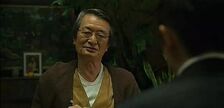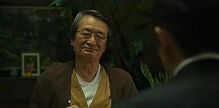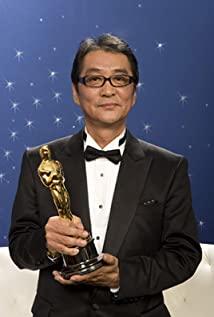Departures The theme is easy to understand
-
Oma 2022-03-28 09:01:06
As a movie that was strongly recommended by my friends very early, I had a lot of expectations. The long and slow documentary adjustment made everyone's emotions seem real because they were closed. But after reading it, I feel that it is a little long and rigid, and the dialogue of the characters is like reading a book, which is a little regrettable. About life and death, other film critics have said very well, I just want to talk about the heroine. In many Japanese works, the female protagonists are like dummies, always beautiful, gentle and obedient. The husband carries a huge debt on his back and does not get angry. The husband is unemployed and returns to his hometown and he follows him silently. I explained to myself that I just had to announce that I didn’t want to change jobs. Instead, after I ran away, I would take the initiative to come back because I was pregnant and loved my husband. When I persuaded my husband to change jobs, I would keep a low voice, and finally I was arranged to see my husband die with a smile. I understand him tearfully, and feel that the inequality of family status is one aspect, and the lack of communication between husband and wife is a great hidden danger. Every time the camera closes up on the beauty of Ryoko Hirosue, she feels that she can't laugh. She is even a graphic designer herself. But she also lived such a low eyebrow and pleasing to the eye, and being a "perfect" wife throughout the article is embarrassing.
-
Burley 2021-12-25 08:01:15
I think this movie is not about death or even remembrance, but about how a person faces the worldly gaze in adversity. Life goes from caring about other people’s vision to finding one’s own value at work. It’s highly recognized that it communicates with the world and has forgiveness. From this perspective, this movie is more like an inspirational movie than a simple emotional movie.
-
Ikuei Sasaki: Oh, you... So you're not depressing.
Daigo Kobayashi: Thank you
Ikuei Sasaki: I knew an ad would work. Make some tea.
Daigo Kobayashi: My resume...
Ikuei Sasaki: Good. Sit down.
Daigo Kobayashi: Thank you.
Ikuei Sasaki: Will you work hard?
Daigo Kobayashi: Uh... yes
Ikuei Sasaki: You're hired. What's your name?
Daigo Kobayashi: Daigo Kobayashi.
Ikuei Sasaki: [to Yuriko] Get him some cards.
Yuriko Kamimura: Okay.
Daigo Kobayashi: But what about salary and stuff like that?
Ikuei Sasaki: Oh... how about one hand to start?
Daigo Kobayashi: One hand? 50,000 yen.
Ikuei Sasaki: 500.
Daigo Kobayashi: 500,000 yen?
Ikuei Sasaki: Too low?
Daigo Kobayashi: You pay that much?
Ikuei Sasaki: In cash, if you want.
-
Daigo Kobayashi: What does the job involve?
Ikuei Sasaki: Well... At first, being my assistant, I guess.
Daigo Kobayashi: Specifically...
Ikuei Sasaki: Specifically? Casketing.
Daigo Kobayashi: Casketing?
Ikuei Sasaki: Putting bodies in coffins. It bloomed!
Daigo Kobayashi: You mean dead bodies?
Ikuei Sasaki: That's really funny.
Daigo Kobayashi: Uh, no, I mean... The ad said departures, so I thought it meant a travel agency.
Ikuei Sasaki: That's a misprint. It's not departures, it's the departed.
Daigo Kobayashi: The departed.
Ikuei Sasaki: NK stands for nokan, casketing. Anyway, fate brought you here. Give it a try, Quit if you don't like it. Today's pay.
Daigo Kobayashi: No, I couldn't.
Ikuei Sasaki: It's fine.
Daigo Kobayashi: No, no.










